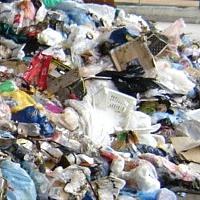(BRUSSELS) – European ministers adopted Tuesday a new waste package which sets out new rules for waste management and establishes legally binding targets for recycling, as part of a wider EU circular economy policy.
The new rules will help to prevent waste and, where this is not possible, significantly step up recycling of municipal and packaging waste. They phase out landfilling and promote the use of economic instruments, such as ‘Extended Producer Responsibility’ schemes. The new legislation requires EU Member States to take specific measures to prioritize prevention, re-use and recycling above landfilling and incineration – realising EU plans for a ‘circular economy’.
“Today we close the loop of product lifecycles, from production and consumption to waste management,” said Bulgaria’s Environment Minister Neno Dimov, for the EU presidency: “This decision is about making our economies more sustainable and environmentally-friendly.”
The details of the new waste rules:
Recycling targets for municipal waste:
| By 2025 | By 2030 | By 2035 |
| 55% | 60% | 65% |
In addition, stricter rules for calculating recycling rates will help to better monitor real progress towards the circular economy.
New recycling targets for packaging waste:
| By 2025 | By 2030 | |
| All packaging | 65% | 70% |
| Plastic | 50% | 55% |
| Wood | 25% | 30% |
| Ferrous metals | 70% | 80% |
| Aluminium | 50% | 60% |
| Glass | 70% | 75% |
| Paper and cardboard | 75% | 85% |
The legislation contains a landfill reduction target, and sets minimum requirements for all extended producer responsibility schemes. Producers of products covered by these schemes must take responsibility for the management of the waste stage of their products, and will be required to contribute financially. Mandatory extended producer responsibility schemes for all packaging have also been introduced. Member states shall endeavour to ensure that as of 2030, all waste suitable for recycling or other recovery, in particular in municipal waste, shall not be accepted in a landfill.
The waste package will lead to more recycling of waste and so contribute to the creation of a circular economy. It will encourage the use of recyclable packaging and reusable packaging and will improve the way waste is managed.
Now that the Council has adopted the legislation, it will enter into force 20 days after its publication in the Official Journal.
Directive on the landfill of waste


